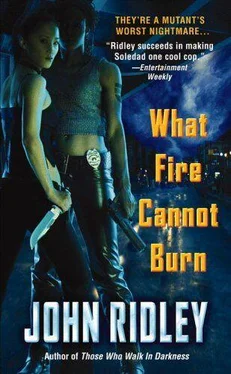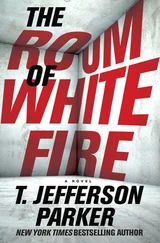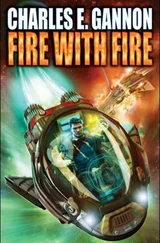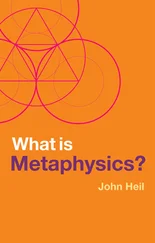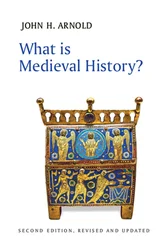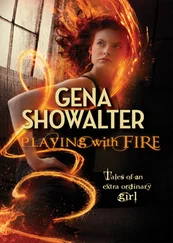"And those operators mostly never get past SWAT." Soledad was adamant about the point, having worked with enough jarheads, youth wasted on PlayStation and thinking cop work, was nothing but. a video game, to last a lifetime. A lifetime that was likely to get. fractionalized when the jarhead found out too late that when you're going after a freak you don't get do-overs. "They can play badass all day, all night. Doesn't make them anything of the kind. Every other cop job. the odds are you're going to live, retire, get fat off your pension. MTac, every day you survive you've beat the odds. You know that. And you know, a job where being dead is the norm, you've got to be down for the cause."
"You'd stay with it, then; stay with MTac?"
Panama was probing. Soledad didn't care for it.
To Panama: "You ever work MTac?" Panama nodded.
"So what's your story? You don't look like you ever got it bad from a freak." "Maybe I'm too good for that."
"If you were so good, you'd still be MTac, so maybe you suck and got bounced to DMI."
"Lift your shirt," Raddatz said. "Show her your torso."
"The girl's eating."
"I stopped being a girl when I started kicking little boys like you in the teeth." "She's not eating."
"I don't mean right this second she is," Panama said. "But she might want to eat again someday. Why spoil her appetite for life?"
"First call I went on an operator got a hole hand-burned in her chest by a fire freak. So unless you've got something else to show me
Panama lifted his shirt. What he showed Soledad was some whole, other, hideous thing. It was…
Just… some other, hideous thing,
Soledad had to make herself, make herself stare at the damage just so not to come off like a bitch.
Panama lowered his shirt.
"Would you give your back," Raddatz rejoined the conversation, "to an MTac who wasn't in things for the long haul?"
Shirt down, and Soledad was still staring at Panama's torso. Soledad shifted her look to Raddatz. "No."
"So you can see why we're curious."
"We?" The word stuck out to Soledad. So did the fact that, with Raddatz, it probably wasn't a casual slip of the tongue. He was tossing bait. She wanted to know; "When did I become a departmental concern?"
Pulling a laminated menu from a holder at the edge of the table: "You hungry, O'Roark? Can't ever go wrong with a five-dollar steak."
"I'm good."
"Think about things."
"And you're not talking about the steak."
A bit of a smile from Raddatz. He wasn't laughing, but he appreciated her, appreciated Soledad. Soledad had that effect on people. Usually, right before they tried to terminate her in some fashion, they gave her their regard. "I'm talking about what you're going to do with yourself. Think about that."
He put down the menu. With one hand-and for him there was no other way-Raddatz pulled his wallet, picked out some money, tossed it on the table.
At some point early on, almost all kids have a moment where they want to grow up to be policemen. They want to be honorable. They want to aid the community, and in return be looked on with gratitude for serving the public good. Then kids actually grow up, wise up, go for jobs that pay six figures. At least that. And where you don't have to dodge bullets in the process.
Most kids do that.
Not all.
Not Tom Hayes. At a young age Tom got caught in the wanna-be-a-cop frame of mind. Or rut, however you want to look at it. Got in it. Never got out. He'd been indoctrinated by the ads. Not just the slickly produced, near-Hollywood-quality ads the Los Angeles Police Department ran every recruiting season. He got caught up in the actual Hollywood-quality ads. Ever)' movie, every TV show that portrayed the
LAPD as the toughest roughneck shield-wearing MPs on the planet, drawing their guns weekly, wrapping up every crime, no matter how major, in some length of time between forty-four minutes and two hours.
Creative license, sure. But it had to be. Torn figured, an approximation of real life. And for Tom, for having grown up in a trailer park in Palmdale, a cop's pay was the icing that shined like all the gold in Fort Knox laid out end-to-end in the noon sun.
So Tom took the entrance exam, aced it, went to the academy, became a cop.
Then the boredom set in. Even in LA, even in a city of eight-plus million, there was mostly not a lot for a cop to do. Not a lot that was exciting. You could make traffic stops for minor infractions day-night-day. You could settle disputes between/among bums, alkys and vagrants of every known race, creed, color, ethnic and religious background and sexual orientation until you felt like you were working security at a skid row UN meeting. Occasionally, you could get into a beef with some scofflaw punks of the rich, white variety whose snobbery begged for reduction from the polished, forged aluminum of a Monadnock baton. And very, very rarely there'd be some actual trouble-the real-world version of movie/TV show trouble-that maybe just might require the removal of your gun from its holster. The chances of pulling the trigger? What were the chances of getting elected pope?
And even if trouble ever happened that it was so severe it necessitated the pulling of your piece, even in LA that was a once-, maybe twice-in-a-career kind of thing.
If you were a beat cop.
In LA real trouble got dealt with by SPU or SWAT.
Real, real trouble, and MTac got the call. Everything else, every mundane thing was for cops like Tom Hayes. Could've been worse.
Tom could've been a cop years back in the Age of Heroes.
Age of heroes used to be capitalized. Not anymore.
Back then, in the age, there was next to nothing for a cop to do. Drug dealers, gangbangers, carjackers got dealt with by the likes of Nightshift, Street Justice, Urban Legend. Guys-and women-with just enough supernormal abilities to be able to kick the ever-lovin' shit out of your typical punk-with-gun.
Bigger trouble-punks with automatic weapons, terrorists with bombs, superevildoers with particle weapons- got handled by the likes of Elan, GammaMan, Nubian Princess.
Cops worked crowd control, directed traffic around the inevitable damage done when supertypes mixed it up.
Then San Francisco. May Day. Then the age of heroes got written in lowercase. Then beat cops like Tom Hayes got elevated from doing absolutely nothing to doing barely anything.
So when Officer Hayes got the call from dispatch to "see the man" down at the LA River, it gave him no spike. Another bumfight. A couple of white kids, rolling on E, in need of an attitude adjustment.
When he got to the river-a river by name, in actuality a concrete ditch used as an aqueduct to flow the water the city stole from the northern part of the state-and talked to "the man" who'd put in a call to the Hollywood station re: a body he'd found, Officer Hayes didn't make much of it. Bodies, like abandoned cars, got found constantly.
But if he'd had so much as a sliver of an idea that, staring at the body, he was witness to a portion of a play that featured God and man, Officer Hayes would've made more of the moment. Probably, he would have bent over and puked in the face of it. More intrigue than his internal organs could handle.
But he was aware of nothing but a dead body.
He waited for a hearse from LACFSC to come and take it away.
Then Officer Tom Hayes went and got himself some lunch, writing up a moving violation along the way.
There was one message on Soledad's integrated cordless phone/digital answering machine. Her mother, Soledad figured. About the only other person who called at home-besides telemarketers who had no regard for the Do Not Call Registry-was Vin, and Vin hardly ever called Soledad.
Читать дальше
